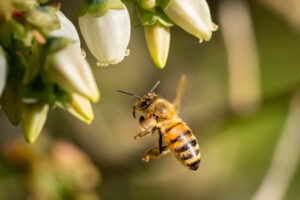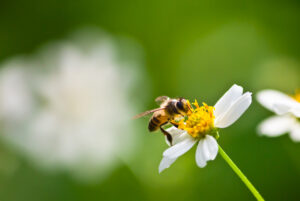The Busy Bees: The Secret Life of Nature’s Pollinators

– Shivaan Darda

If you’ve ever wondered why bees are constantly buzzing from flower to flower, it’s not because they can’t sit still— they’re hard at work keeping the planet ticking. Bees, along with other pollinators like butterflies, bats, and hummingbirds, play a crucial role in ecosystems, agriculture, and even the foods we eat every day. Here I will elaborate.
Pollination: Nature’s Delivery Service
Pollination happens when pollen from one flower is transferred to another, allowing plants to reproduce and form seeds, fruits, and vegetables. Without this process, many of our favourite foods simply wouldn’t exist! In fact, about 75% of the world’s leading food crops depend at least in part on animal pollinators.
Why Bees are Vital for Pollination
Bees are particularly efficient at this process. A single one can visit up to 5,000 flowers in a single day, collecting nectar and pollen while helping plants cross-pollinate. They are responsible for aiding the growth of nearly one-third of plants in farms—including apples, almonds, blueberries, cucumbers, and more.

Beyond farming, they also support wild ecosystems
Many plants depend on them for reproduction, which further supports herbivores, birds, and other animals higher up the food chain. Bees even help maintain genetic diversity, making ecosystems more resilient to environmental changes.
Why Their Work Matters More Than Ever
Bees are under threat from habitat loss, pesticides, climate change, and disease. Alarmingly, some bee populations have declined by more than 40% in recent years.
So next time you see a bee darting about, remember—it’s not just busy, it’s building a healthier planet, one flower at a time. Their work might be small in scale, but its impact is massive.